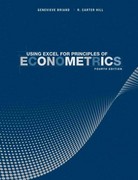Question
Module 4 Part 2 video quiz Question 1. The slope of an isoquant curve shows a. how adding labor or capital increases output. b. the
Module 4 Part 2 video quiz
Question 1.
The slope of an isoquant curve shows
a. how adding labor or capital increases output.
b. the tradeoff between labor and capital while keeping output constant.
c. how expensive it is to hire labor versus paying for capital.
d. what happens to output when you keep either labor or capital constant and increase the other.
Question 2
A particular isoquant curve includes the following combinations of labor (L) and capital (K): (2L,5K); (4L,4K); (6L,2K). Which of the following is true
a. The 2L,5K combination produces the most output since it uses the most capital.
b. The 4L,4K combination produces the most output since it has an even mix of inputs.
c. Each of these combinations of L and K produces the same amount of output.
Question 3
Isoquant A is situated above and to the right of Isoquant B. Isoquant B is associated with a larger amount of output than Isoquant A.
a. True
b. False
Question 4
The slope of the isocost line shows the ratio of prices of the two inputs (L and K).
a. True
b. False
Question 5
All affordable combinations of L and K are represented by
a. the isocost line and the area within (below and to the left of) it.
b. the isocost line itself; combinations that are not directly on the line are not affordable.
c. the space above and to the right of the isocost line.
Question 6
Without knowing what the graph of the isocost and isoquant lines look like, you can be assured of making an optimal decision if
a. the marginal product of labor is equal to the marginal product of capital.
b. the wage is equal to the price of capital.
c. the ratio of marginal products equals the ratio of input prices.
Question 7
The cost minimization decision seeks to
a. reach the lowest isocost line while still staying on the required isoquant line.
b. reach the highest isoquant line while still staying on the required isocost line.
Question 8
Long-run marginal cost shows
a. the rate at which long-run total cost changes when output changes.
b. the change in output that results from a change in long-run variable cost.
c. the change in long-run fixed costs that occur with a change in output.
Question 9
The long-run average cost curve is typically
a. horizontal since maximum efficiency is reached in the long run.
b. U-shaped, with economies of scale early and diseconomies of scale later.
c. upward-sloping over all ranges of output, since costs increase as output increases.
d. downward sloping since, in the long run, firms can plan their labor/capital combinations to be most efficient.
Question 10
A firm experiences long-run economies of scale when
a. long-run marginal costs are rising.
b. long-run average costs are falling.
c. long-run average costs are rising.
d. long-run marginal costs are falling.
Question 11
Diseconomies of scale can occur when
a. it becomes expensive and difficult for a firm to effectively manage a large amount of labor and capital.
b. labor is being constrained by the fixed amount of capital.
c. output per worker exceeds the amount of output per capital.
d. capital becomes more productive than labor.
Question 12
Companies in a particular industry may typically be small because
a. the minimum long-run average cost is reached at a relatively low level of output.
b. the long-run average cost curves of such firms has a very long range of economies of scale.
c. there is a flat portion of the long-run average cost curve.
Question 13
Very large companies can manage to remain profitable if
a. their minimum long-run average cost is reached at low levels of production.
b. they enter the range of diseconomies of scale at low levels of output.
c. they have long-run average cost curves with a long range of economies of scale.
Step by Step Solution
There are 3 Steps involved in it
Step: 1

Get Instant Access to Expert-Tailored Solutions
See step-by-step solutions with expert insights and AI powered tools for academic success
Step: 2

Step: 3

Ace Your Homework with AI
Get the answers you need in no time with our AI-driven, step-by-step assistance
Get Started


